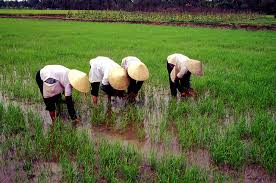
Link to the T&F site for the article
My former PhD-student Le Thi Hong Phuong now has a fourth paper from her dissertation which she only defended a few months ago, accepted in Local Environment a T&F journal on justice and sustainability (one of the oldest journals in this area!). Here is the abstract:
ABSTRACT
Social learning is crucial for local smallholder farmers in developing countries to improve their adaptive capacity and to adapt to the current and projected impacts of climate change. While it is widely acknowledged that social learning is a necessary condition for adaptation, few studies have systematically investigated under which conditions particular forms of social learning are most successful in improving adaptive capacity of the most vulnerable groups. This study aims to design, implement and evaluate a social learning configuration in a coastal community in Vietnam. We make use of various methods during four workshop-based interventions with local smallholder farmers: interviews with key farmers and commune leaders, farmer-to-farmer learning, participatory observations and focus group discussions. The methods for evaluation of social learning configuration include in-depth interviews, focus group discussions and structured survey interviews. Our findings show that the social learning configuration used in this study leads to an increased problem ownership, an enhanced knowledge-base with regard to climate change impacts and production adaptation options, improved ability to see connections and interdependencies and finally, strengthened relationships and social cohesion. The results suggest that increased social learning in the community leads to increase in adaptive capacity of smallholder farmers and improves both their economic and environmental sustainability. We discuss the key lessons for designing learning configurations that can successfully enhance adaptive capacity and smallholder farmers’ agency and responsiveness to the challenges posed by climate change impacts.







